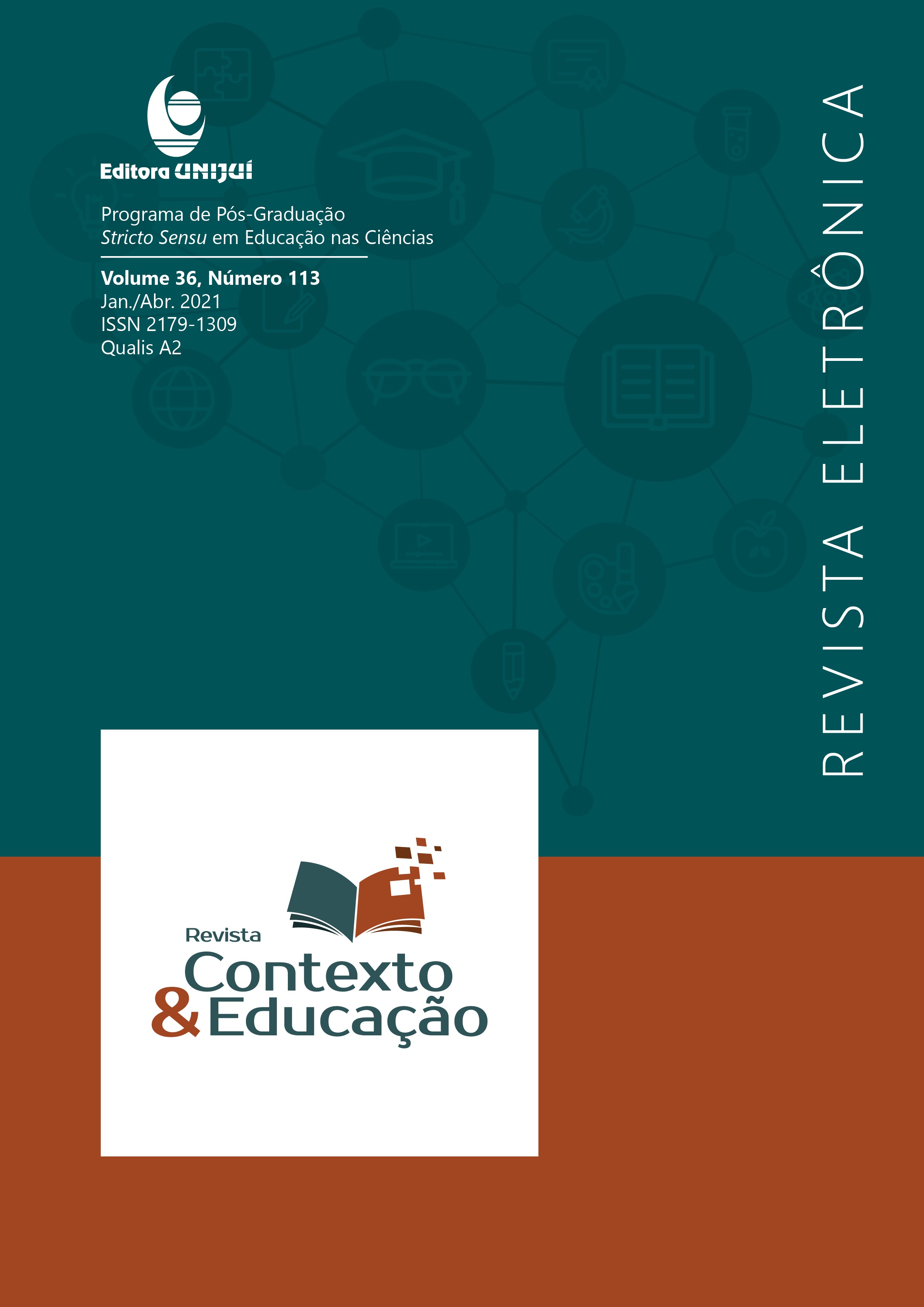DIALOGUE INQUIRY IN SCIENCE CLASSROOM
DOI:
https://doi.org/10.21527/2179-1309.2021.113.143-162Abstract
The article presents understandings of an ethno-research-formation with teachers, about dialogical research in the science classroom. It covers the constitution of the empirical field, delimiting the analysis of 43 reports produced by professors of the field of Natural Sciences (Chemistry, Physics, Biology and Sciences) under formation in the 2016 and 2017 editions of the CIRANDAR extension project: research circles since the school, developed at a Brazilian Public University in partnership with Basic Education Schools. The analysis is based on the language expressed in the textual productions, in which empirical information emerged from the research, based on the guiding question of the study. What is this from research in the reports of science teachers in CIRANDAR? It is assumed that ethno-research-formation in a hermeneutic phenomenological approach as a means of epistemological construction. The information was analyzed following the principles of Discursive Textual Analysis (ATD), in which four final categories emerged. In this text, we present understandings related to category IV) Dialogical inquiry in the science classroom, which shows the dialogical investigation is assumed by the analyzed teachers' collective, as a didactic-pedagogical strategy triggered by the problematization, with questions from students and teachers when operating, collectively, information. and scientific language in constituting, negotiating and communicating meanings in the science classroom.
Downloads
Published
How to Cite
Issue
Section
License
By publishing in Revista Contexto & Educação, authors agree to the following terms:
All works are published under the Creative Commons Attribution 4.0 International License (CC BY 4.0), which allows:
Sharing — to copy and redistribute the material in any medium or format;
Adaptation — to remix, transform, and build upon the material for any purpose, even commercially.
These permissions are irrevocable, provided that the following terms are respected:
Attribution — authors must be properly credited, a link to the license must be provided, and any changes made must be indicated.
No additional restrictions — no legal or technological measures may be applied that legally restrict others from doing anything the license permits.
Notices:
The license does not apply to elements that are in the public domain or covered by legal exceptions.
The license does not grant all necessary rights for specific uses (e.g., image rights, privacy, or moral rights).
The journal is not responsible for the opinions expressed in the articles, which are the sole responsibility of the authors. The Editor, with the support of the Editorial Board, reserves the right to suggest or request modifications when necessary.
Only original scientific articles presenting research results of interest that have not been previously published or simultaneously submitted to another journal with the same purpose will be accepted.
Mentions of trademarks or specific products are intended solely for identification purposes and do not imply any promotional relationship by the authors or the journal.
License Agreement (for articles published from October 2025): Authors retain the copyright to their article and grant Revista Contexto & Educação the right of first publication.


